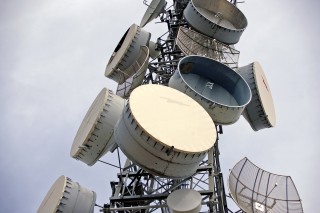As Nigeria, Africa’s largest market battles fuel shortage, attention will once again be focused on how this would affect the economy. One of the important sectors to be hit hard by this new setback is Nigeria’s telco sector. The lack of adequate power supply in most of Africa means its TELCOs sector will mostly run on generators. However, for Nigerian telcos, even that continues to be debilitating to offering quality services; power provided by both the National electricity grid and generators are also problems.
Parallel Wireless, a telecom company, has the solutions to these problems. Looking at Nigeria’s big economy, its rural market being the biggest, the telecoms company has solutions to help Nigeria’s Telcos provide value to these market.
“The African service providers require innovative technology solutions to address the unique problems faced by them in addressing the rural market. One of the most critical issues faced by them is that of high incidences of power outages, which adds to the increased cost of conducting business as the telcos are forced to use generators to keep the network up and running. Secondly, extremely low Average Revenue Per User (ARPU) means that the telcos find it hard to justify the massive investment to expand and modernize the network.”
Another problem faced by Nigeria’s telcos is the low profit they garner per user. With companies like Whatsapp, Skype, Facebook offering the same services many of these telcos offer, the revenue to be generated by these Telcos, who also provide data for the above applications to work, reduce drastically.
“These factors limit the expansion of mobile networks in the rural areas and ensure that the population is unable to gain from the benefits of broadband.”
To solve these problems, Parallel Wireless proposes bringing down the cost of deploying the network. “The telcos need to bring down the cost of deploying the network to bridge the digital gap and to address the vast potential of the rural market.” Doing that will include exploring the benefits of 2G technology, still the mainstay of the African market.”

“Parallel Wireless’s combines the benefits of 2G technology with the concept of virtualization to offer easy-to-install, easily upgradeable solution, uniquely suited to the requirements of the rural market. It consumes as much as three-times reduced power and covers a much larger area when compared with a traditional network.”
By leveraging on 2G technology, two problems are solved: the rural market is maximized, while less power is consumed in producing these services.
Creating an ecosystem built mainly around Africa’s rural market, the biggest user of telco services, will help raise revenue.
“Deployment of a rural mobile ecosystem can make a significant contribution to Africa’s economy and growth. It is imperative that telcos adopt the technologies which make it easier for them to address the rural market which in turn will allow the population in the hinterland to benefit from connectivity.”








